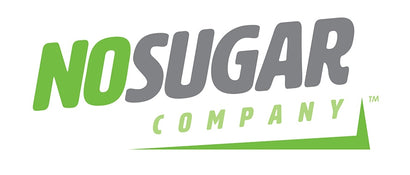Your Cart is Empty
FREE standard shipping on all orders of $50 or more*. Learn more
FREE standard shipping on all orders of $50 or more*. Learn more
What to add to your keto shopping list

Thinking of going keto but not sure where to start? The ketogenic diet is a low-carb, high healhy fat diet that conditions your body to use healthy fats as a fuel source. It's all about managing your macronutrients, which is why your grocery list is the perfect place to begin. Before you stock your fridge, consider adding these items to your keto shopping list.
Foods to include on your keto shopping list
Eggs
Hard boiled eggs are a great source of protein, almost 6g per egg to be exact. They are low in carbohydrates and contain nutrients and antioxidants such as lutein and vitamin D. Easy to cook, they're the perfect protein source to add to a salad or snack on throughout the day.
No Sugar Keto Bar
The No Sugar Keto Bar is a no sugar keto bar made with healthy fats and fair trade dark chocolate. It's keto calorie ratio —75% healthy fats, 20% clean plant-based protein and 5% carbohydrates — make these bars ideal for a dessert craving, or an after-work-out snack. They come in four different flavors and can be purchased online from nosugarcompany.com.
Low-carb vegetables
Vegetables should always be a must on your shopping list, but certain vegetables have a higher carb count than others. Focus on vegetables with a low carb count such as spinach, broccoli, mushrooms, celery, lettuce, kale and cucumbers. Spinach and kale in particular are both filled with vitamins and fiber.
Low-carb fruits
Fruits are a natural source of nutrients, but the sugars that occur in fruits make some of them too high in carbohydrates to enjoy. Consider adding raspberries, blackberries, strawberries and watermelon as those fruits have a much lower carb count than others. Avocados are also a must-have fruit on your list as they're filled with healthy fats!
Meat & poultry
The ketogenic diet is all about consuming natural sources of protein and fat — grass-fed steaks or chicken breasts are great, but processed meats should be avoided.
Seafood
Seafood varies in the number of carbs but certain seafood, like Salmon, is a high source of omega-3 fats and contains 0g of carbs. You can also eat shellfish such as octopus, squid and clams, as they are all low-carb options.
High-quality Cheese
Cheese is a great high-fat low-carb food, but as with everything, it should be consumed in moderation. You also want to focus on choosing high-quality cheeses rather than processed, refined cheese. Goat cheese, blue cheese, havarti, feta — if it's high-quality and unprocessed, you can indulge!
Olives
Olives are low in carbs and contain anti-inflammatory properties. Depending on the size, seven olives will have approximately 2g of carbs. They're great to snack on or add as a salad topping.
Foods to avoid on your keto shopping list
Now that we've gone over what you can include, let's talk about foods you should avoid. Foods that are highly processed or contain a high carb count won't help you get into ketosis. When creating your shopping list, make sure these foods are avoided.
Sugary foods
There's no denying we aren't fans of sugar, but the fact is refined and added sugars just aren't good for you. They're also full of carbs. Avoid things like sugar-filled snacks, dessert, sauces and dressings.
Root vegetables
Root vegetables like sweet potatoes, corn and lentils are all high in carbohydrates. To kick your body into ketosis, and maintain it, you can only consume 20g to 50g of carbs per day.
Unhealthy fats
The ketogenic diet encourages you to eat fatty foods, but only those with natural fats that are good for you. Be mindful of the kind of fat you're consuming — monounsaturated fat and polyunsaturated fat is good for your health, but trans fats aren't.
Would you like to learn how you can follow a no sugar diet? Check out our ultimate guide here!
Learn more about the No Sugar Company here.
Also in Knowledge
Categories
Recent Articles
- No Sugar Diet: Everything You Need to Know
- Healthy sugar substitutes for baking
- How to get in great shape for summer
- Celebrate National Natural Joy Day May 2nd With Us!
- 5 Surprising Benefits to Cutting Down on Sugar
- Discover our New Irresistible METABAR
- How to Reduce Sugar Intake After the Holidays
- How to Supplement Keto Shakes into Your Diet
- The Ketogenic Diet: Tips for Beginners
- Five low sugar swaps for kids



